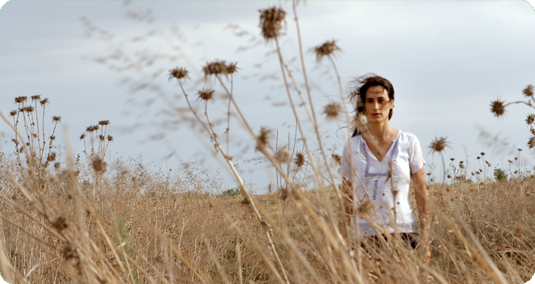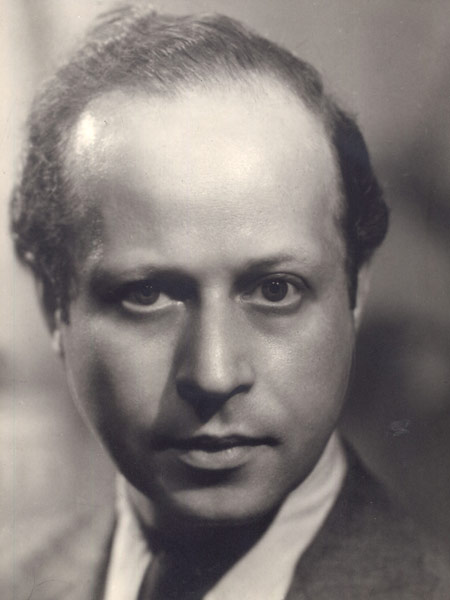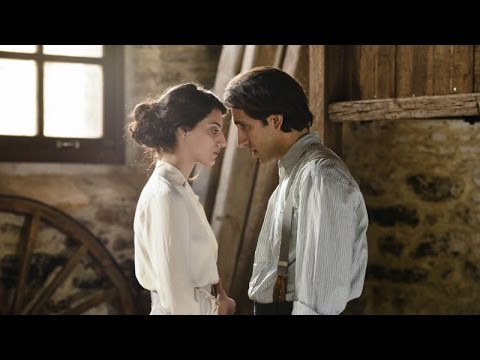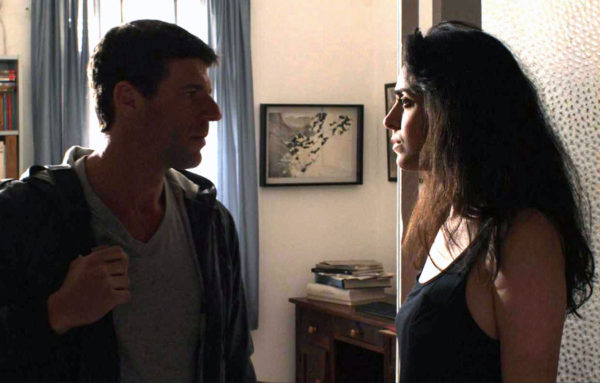The subject of her disturbing documentary, the Beitar Jerusalem football team, was the only professional club in Israel until 2012 without a single Muslim player. Its proprietor, Arkady Gaydamak, a Russian billionaire/oligarch, fixed that problem by hiring two Muslim players from Chechnya, Dzhabrail Kadayev, 19, and Zaur Sadayev, 23. Most of the fans passionately resented the newcomers and jeered them relentlessly whenever they appeared on the field, or scored a goal.

Their blatant displays of boorishness and racism were a blot on the team, the city of Jerusalem and the state of Israel.
Team captain Ariel Harush, having been critical of their appalling behavior, was mercilessly heckled. Sadly, no other player summoned up the courage to emulate his example, though a player from South America expressed puzzlement and shame over the fans’ behavior.
Gaydamak hired the Chechens in the belief, or hope, that they might boost the club’s standing in the Premier League. Beitar Jerusalem had won the Israeli championship in 2007 and 2008, but had sunk to the bottom of the pack when Gaydamak decided to hire them. Management, including coach Eli Cohen, welcomed the Chechens, trusting that the usually wild and unruly fans would accept them with open arms. Much to their disappointment, they not only continued to pour scorn on the two new players, but went as far as to stage a boycott of the team they so dearly loved.
Their reaction was hardly surprising. The vast majority of Beitar Jerusalem’s fans are underprivileged Israelis from working-class Sephardi backgrounds whose political views veer far to the right. Ardent nationalists who dislike Arabs, they tend to vote for the Likud Party or for parties to the right of Likud. Two of their favorite chants are “Death to Arabs” and “Beitar forever pure.”
Throughout the years, Likud politicians have gravitated toward Beitar Jerusalem, which was founded in 1936. A telling archival clip shows Benjamin Netanyahu, the current prime minister, happily mingling with fans and repeatedly bouncing a ball off his head. Israel’s president, Reuven Rivlin, is also a fan, as is Defence Minister Avigdor Liberman.
Given these socio-economic variables, Zinshtein’s film transcends sports, becoming a commentary on the fraught nature of Arab-Jewish relations in contemporary Israel.
Dan Wolman’s romantic drama, Israeli Love Story (May 11 & May 13), based on a play by Pnina Gary, resurrects a time and a place that belong to history. It’s 1947 and the British still control Palestine under a League of Nations Mandate. Arab-Jewish tensions are boiling over, and a United Nations plan to partition Palestine into Jewish and Arab states Palestine is just months away.

Amid the political acrimony, two young people meet fleetingly on a Haifa- bound bus and fall for each other. They’re Margalit Dromi (Adi Bielski), 18, and Eli Ben-Zvi (Avraham Aviv Alush), 24. She’s an aspiring actress from Nahalal, a moshav in northern Israel where, as it happens, Moshe Dayan was born. He’s a commander in the Palmach fighting force, which produced some of Israel’s most prominent leaders. Margalit’s father, a Russian Jew, is a beekeeper. Her mother prepares honey for sale.
From the moment she sets eyes on Eli, Margalit is smitten. She makes no effort to conceal her feelings. Eli turns up on the moshav one day, and she invites him for supper at her parents’ place. They see each other again on a beach at night as Eli and his comrades welcome illegal Jewish immigrants to Palestine. Margalit is clearly in love with Eli, but he has a girlfriend.
The film unfolds against the background of escalating Arab-Jewish acrimony. After two Jewish girls are killed, Eli leads a raid against an Arab village. Shortly afterwards, Margalit’s father warns an Arab man to stay away from the moshav for the next two or three weeks. He, in turn, is warned by fellow Arabs to cut off contact with Jews.
Margalit draws closer to Eli, the son of Yitzhak Ben-Zvi, who will become the second president of Israel. She visits him on his budding kibbutz and rides with him on the back seat of his motorcycle. These scenes unfold in bucolic countryside under a bright Mediterranean sun. Finally, they embrace and kiss. From that point onward, they’re a couple. Margalit, an individualist, rejects the collective spirit of the kibbutz, but Eli upholds it. This philosophical disagreement temporarily jolts their beautiful relationship. In the meantime, Margalit goes to Tel Aviv to audition for a job in a theatre.
The politics of the Arab-Israeli conflict are brought to bear in a scene during which Margalit’s father and his friends listen to a live broadcast from the United Nations, which votes to partition Palestine on November 29, 1947.
As Palestine descends into civil war, Eli and Margalit decide to get married, but tragedy strikes and the tone of the film changes.
Israeli Love Story, competently-crafted, succeeds in recreating the birth pangs of a nation. The actors turn in highly effective performances. Ori Vidislavski’s plaintive soundtrack heightens the nostalgic mood.
A priceless collection of Asian art is exhibited in Wilfrid House, a museum on the lush grounds of Kibbutz Hazorea in northern Israel. It’s named after Wilfrid Israel, a German Jew who was instrumental in organizing the Kindertransport, which saved more than 10,000 European Jewish children imperilled by Germany in the late 1930s.
Yonatan Nir’s intriguing documentary, Essential Link (May 8 & May 11), sheds light on this nearly forgotten hero.

Israel, a dual citizen of Britain and Germany, owned the largest department store in Berlin, N. Israel, which had 2,500 employees. During the Nazi period, he facilitated the emigration of hundreds of his Jewish workers to Mandate Palestine and paid their salaries for the next two years. Many of the newcomers went to live on Kibbutz Hazorea, on the northern fringes of the Jezreel Valley. Nir’s grandfather, a German Jew, was one of its founders, and Nir himself was born there.
Nir explores Israel’s acquisition of Asian artifacts, his contribution to the movement of German Jews to Palestine and his integral role in the establishment of the Kindertransport. Israel comes off as a modest and unassuming philanthropist who had a heart of gold.
Sadly, he was killed when German aircraft shot down his plane on a flight from Portugal to Britain in 1943. Leslie Howard, the Hollywood actor, was one of the victims.
In closing, Nir points out that not a single Israeli street is named after Israel. A shame.
Manousos Manousakis’ Greek-language movie, Cloudy Sunday (May 7 & May 10), unfolds in the city of Thessaloniki (Salonica) in 1943 against the backdrop of an increasingly brutal German occupation whose chief victims will be its Jewish population.
As the Nazis terrorize and marginalize the venerable Jewish community, two young lovers try to rise above the hatred and persecution. Since Estrea (Christina Hilla Fameli) is Jewish and Giorgos (Haris Fragoulis) is Christian, they’re swimming against the tide. In Greece, mixed marriages are uncommon, especially during this incredibly stressful period. And their respective parents oppose their unusual relationship.

A subplot unfolds in an ouzeri, a traditional tavern where patrons enjoy Greek music and songs. Its owner, Vasilis Tsitsanis (Andreas Konstantinou), is hard-pressed to replace a singer who’s abruptly left. The ouzeri, normally an oasis of gaiety, is now being raided by German troops in search of Greek resistance fighters. When one of its leaders is captured, he’s murdered, his bloodied corpse strung up on a pole to intimidate local residents.
Early on in the film, Jewish men between the ages of 18 and 45 are ordered to report to the city’s central square. Slackers will be imprisoned, the Germans warn. The order touches off a debate. The naive rabbi claims the Germans merely want to conduct a census. Dissenters think otherwise.
Estrea is pessimistic. “There’s worse to come,” she predicts. Giorgis, having spoken to the police chief, warns Estrea the Jews must leave Thessaloniki before it’s too late.
In quick succession, the Germans tighten the screws, imposing a huge fine on the Jewish community and demanding a list of its members. Jewish elders comply, erroneously thinking that cooperation will save them from a worse fate. Antisemites rejoice at the news that Thessaloniki will be free of Jews.
As these events occur, Giorgis, a member of the resistance, shoots a Greek traitor, a collaborator who’s handed the Germans important information.
When the Germans announce that Jews will be deported to Poland, the rabbi issues an assurance that life will be better there. Little does he know that the gas chambers of Auschwitz-Birkenau are gearing up for the imminent arrival 46,000 Jews. Thanks to Giorgis’ intervention, Estrea is given the chance to save herself.
Cloudy Sunday is a workmanlike film that explores a Greek tragedy with empathy and sensitivity.
How malleable is personal identity? Judging by Tova Ascher’s A.K.A. Nadia (May 8 & May 10), which takes place in Jerusalem between 1987 to 2007, it’s a work in progress.
Nadia Kabir (Netta Shpigelman), a Palestinian Arab from East Jerusalem, finds herself alone, abandoned and adrift in London after her husband, Nimer (Ali Suliman), disappears. Nimer, a member of a Palestinian political organization, has been detained by the police and drops completely out of sight. Nadia wants to go back to Israel, but she may be arrested as a terrorist if she does so under her real name. She hires an ex-cop to provide her with new papers, but the forged Israeli passport she receives lists her as a Jew, an identity she doesn’t exactly relish.

The film moves forward 20 years and Nadia is now Maya, a happily-married Jewish woman with two children and a husband who holds a senior position in the Israeli government. Maya herself is a choreographer in a dance troupe.
Neither her spouse, Yoav (Oded Leopold), nor her teenaged children, realize she’s an Arab. It’s Maya’s big secret, one she shares only with her mother, whom she meets regularly for picnics in a serene olive grove. Certainly, Maya appears to have left all traces of her Palestinian background behind. How plausible is this scenario? Frankly, it strains credulity.
A.K.A. Nadia is rife with promise, and the performances are quite convincing. But its basic premise is far-fetched and underdeveloped, and the transitions from one scene to the next are abrupt.
